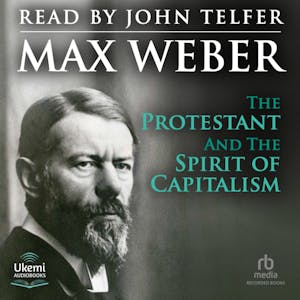Though this work originated in a series of essays in the opening decade of the twentieth century, Max Weber's The Protestant Ethic and the Spirit of Capitalism first appeared in English in 1930 and its title alone – a clear but powerful premise – made a strong international impact. Here, in a single sentence, was a persuasive, challenging concept that offered a fascinating antidote to the growing influence of secular Marxist economics and its specific rejection of capitalism. But was the title true? The ensuing years have appeared to validate Weber's argument. Throughout the twentieth century, The Protestant Ethic and the Spirit of Capitalism was regarded as an important sociological and economic text, continuing into the twenty-first century, when extreme capitalism has continued to come under fire. Weber's work provided a history, from where the profit motive could be ethically justified. Max Weber (1864-1920) combined his interests in sociology, political economy and history to give perspective to his analysis. Concentrating principally on the experience of the West, he returned to the time when religion, its concepts and practice, dominated society. But the Reformation, and (post-Luther), the teaching of Calvin, presented a new view on the attitude towards religion, work and economic activity: ‘Labour must, on the contrary, be performed as if it were an absolute end in itself, a calling.'
This recording opens with a useful overview from Professor R. H. Tawney, and continues with the Author's Introduction. The main text is divided into two parts. In ‘Part 1 – The Problem', Weber presents the historical background, including ‘The Spirit of Capitalism' and ‘Luther's Conception of The Calling'. Part II includes a lengthy discussion of Protestant sects, including Calvinism and Methodism, concluding with ‘Asceticism and The Spirit of Capitalism'.
